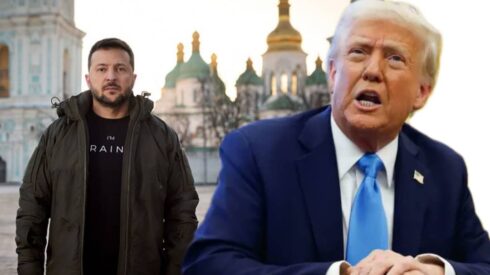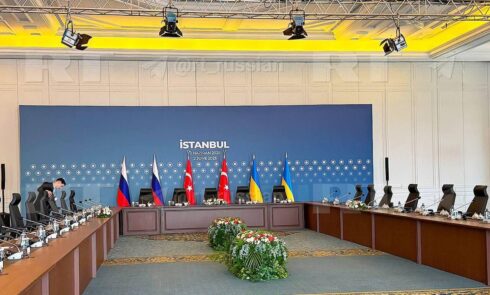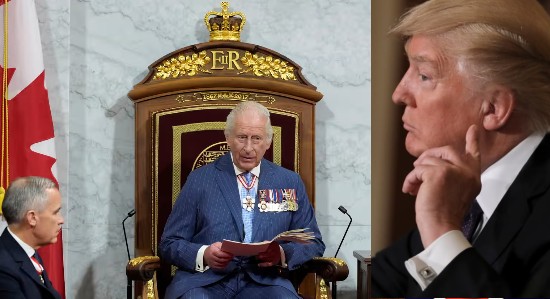Former U.S. President Donald Trump has reignited tensions with Ukrainian President Volodymyr Zelenskyy, branding him a “dictator without elections” amid ongoing discussions about Ukraine’s war with Russia. Trump’s remarks came after Zelenskyy accused him of being influenced by Russian disinformation, following Trump’s claim that Ukraine “could have made a deal” earlier to prevent the conflict.
Zelenskyy swiftly responded, defending his administration and highlighting that Ukraine’s elections were postponed due to martial law, a necessity given the ongoing war. The Ukrainian president, who won 73% of the vote in 2019, reiterated that elections would resume once the conflict subsided. Meanwhile, Trump’s repeated focus on Zelenskyy’s legitimacy echoes narratives pushed by Moscow, which has consistently questioned Ukraine’s leadership.
Donald Trumps Position on Ukraine War Sparks Concerns
Donald Trump’s stance on Ukraine has sparked alarm among European allies, as he has openly advocated for a swift resolution to the war—potentially at Ukraine’s expense. He has engaged in discussions with Russia without including Ukraine or European partners, a move critics say could empower Russian President Vladimir Putin. Trump has also opposed additional military aid to Kyiv unless the U.S. gains something in return, further straining relations.
Experts fear Trump’s approach could undermine Ukraine’s sovereignty and regional stability. Mick Mulroy, a former Pentagon official, criticized Trump’s position, stating that Russia remains one of America’s greatest adversaries. He emphasized that continued military support for Ukraine is in the United States’ strategic interest, as it significantly weakens Russia’s military capacity.
Donald Trump’s Business Interests and Ukraine’s Resources
Beyond military aid, Donald Trump’s relationship with Ukraine has also been marked by business considerations. Reports indicate that he sought access to Ukraine’s rare minerals—an offer that was rejected by Zelenskyy due to a lack of security guarantees. Trump has consistently prioritized transactional diplomacy, demanding returns on U.S. assistance.
His approach stands in stark contrast to that of President Joe Biden, under whose administration U.S.-Ukraine relations flourished. Biden has provided billions in military aid and maintained strong diplomatic ties with Kyiv, reinforcing Ukraine’s position in the war. Trump, however, has signaled a dramatic shift, warning that U.S. support should not come without conditions.
Fact-Checking Trump’s ‘Dictator’ Claim
Trump’s accusation that Zelenskyy refuses to hold elections is misleading. Under Ukrainian law, elections cannot take place during martial law, a measure enacted in response to Russia’s full-scale invasion in 2022. In November 2023, Ukraine’s parliament unanimously agreed to postpone elections until the war ends.
Despite this, Trump insists his criticism is independent of Russian propaganda. His remarks, however, closely align with the Kremlin’s narrative, which has repeatedly questioned Zelenskyy’s legitimacy. The timing of Trump’s statement, coming just hours after Moscow made a similar claim, has fueled speculation about his alignment with Putin’s interests.
International Reactions and the Future of U.S.-Ukraine Relations
Trump’s remarks have triggered strong reactions from global leaders and policymakers. Ukrainian Foreign Minister Andrii Sybiha reaffirmed his country’s commitment to resisting Russian aggression, stating that Ukraine will “defend our right to exist.” Meanwhile, U.S. Senator Bernie Sanders warned that Trump’s approach undermines democracy and strengthens authoritarian regimes.
Trump has also criticized European nations, claiming they have “failed to bring peace” and arguing that the war is “far more important to Europe than it is to us.” His stance suggests a fundamental shift in U.S. foreign policy if he returns to office, potentially jeopardizing NATO unity and Ukraine’s ability to defend itself.
As Trump continues to push for a rapid end to the war—possibly by conceding Ukrainian territory—concerns grow over the long-term impact on global security. With the 2024 U.S. presidential election approaching, the future of U.S.-Ukraine relations remains uncertain, hinging on whether Trump’s views gain traction among American voters.














